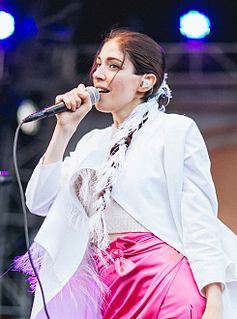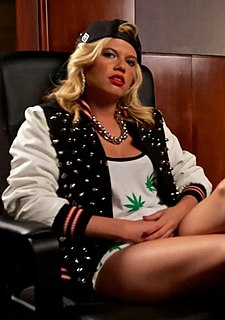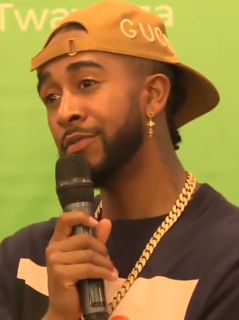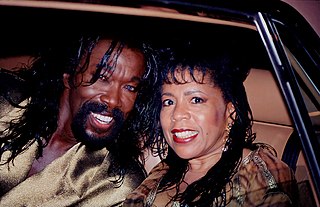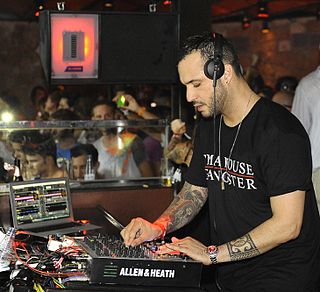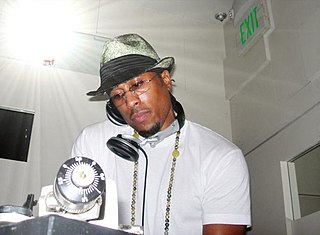A Quote by Caroline Polachek
It's a lot different being a hip-hop artist. You just show up with a piece of paper with your words on it, say it in the mic, then you leave and some other guy does all the music.
Related Quotes
Some artists are definitely trying to do different styles. Some, not a lot. But even from what you've seen [of] Outkast, Kanye West, and Lil' Wayne, and different people expressing their way of evolving in hip-hop. In the evolution of hip-hop, they're doing different things. And you've seen hip-hop have more of a global presence and impact on the world.
I think I can see people wanting to hear more music-music now as opposed to all hip-hop. You know, which I have nothing against hip-hop. I think some of it is really good. But on the other hand, some of the real great artists are just being lost because they're not getting the airplay or anything to make them inspired to record again.
I'm born and raised in Dusseldorf, and my parents emigrated to Germany sometime in the '70s, so I grew up completely different from any other German. I found my love in hip-hop music. Hip-hop was delivering everything that I needed: the message, the lifestyle - everything. I fell in love with it and I'm still hip-hop.
Quentin Tarantino is a hip-hop artist. I told him, 'You're hip-hop!' You keep seeing surprises, and a clip here and there, because Quentin is hip-hop. A hip-hop artist will drop a single, leak something over here, and drop something over there 'cause he knows it's hot. He's on the spot with the way he does things.
Quentin Tarantino is a hip-hop artist. I told him, "You're hip-hop!" You keep seeing surprises, and a clip here and there, because Quentin is hip-hop. A hip-hop artist will drop a single, leak something over here, and drop something over there 'cause he knows it's hot. He's on the spot with the way he does things.
Socially, hip-hop has done more for racial camaraderie in this country than any one thing. 'Cause guys like me, my kids - everyone under 45 either grew up loving hip-hop or hating hip-hop, but everyone under 45 grew up very aware of hip-hop. So when you're a white kid and you're listening to this music and you're being exposed to it every day on MTV, black people become less frightening. This is just a reality. What hip-hop has done bringing people together is enormous.
A lot of the commercial expression of hip-hop leaves a lot to be desired - but then, there's a lot of whack gospel music, but I'm not leading a crusade against it. Of course, the vices of hip-hop are far more influential, I understand. But the good that hip-hop transmits, the power of the culture to rally the best of our protest, and uplift, and resistance, traditions, is often unfairly overlooked.
In this time, we incorporate money and media, and it's split up like apartheid, where when you say "hip-hop," you think just rap records. People might have forgot about all the other elements in hip-hop. Now we're back out there again, trying to get people back to the fifth element, the knowledge. To know to respect the whole culture, especially to you radio stations that claim to be hip-hop and you're not, because if you was a hip-hop radio station, why do you just play one aspect of hip-hop and rap, which is gangsta rap?
